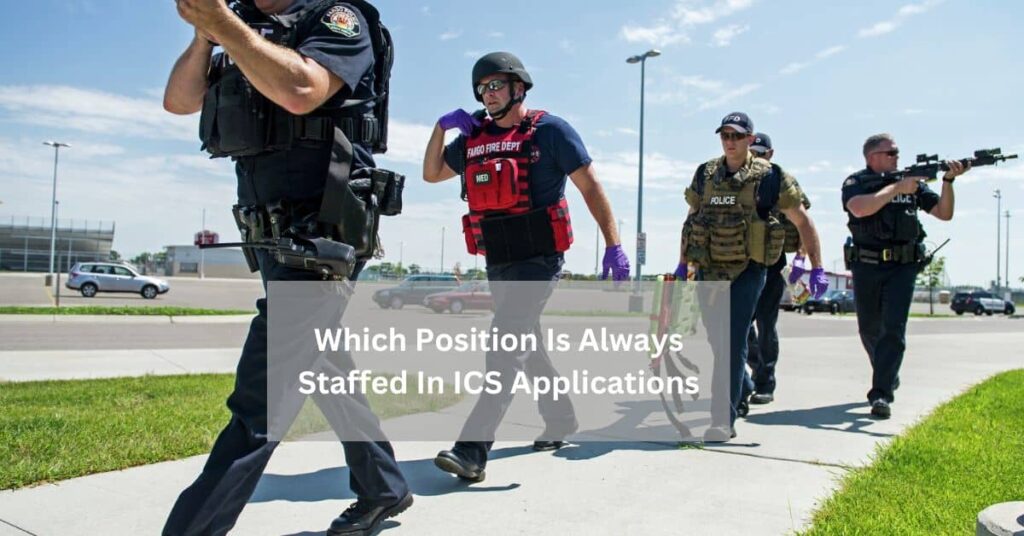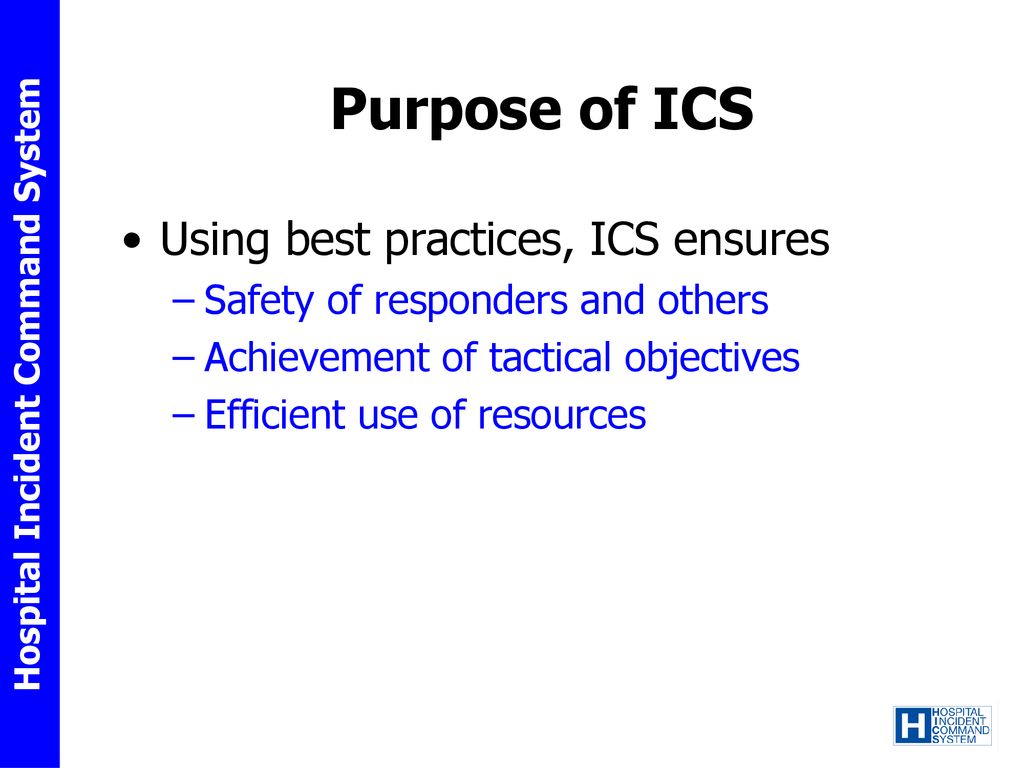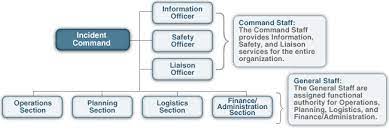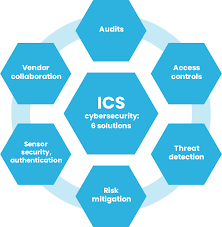Which Position Is Always Staffed In ICS Applications – Guide
5 min read
The Incident Commander is the only position always staffed in ICS applications. However, significant incidents or events may require that these functions be set up as separate Sections within the organization.
In ICS applications, the position always staffed is the Incident Commander (IC). This role ensures effective coordination and decision-making during emergencies. As a critical component of incident management.
In my experience with ICS applications, the role that’s consistently filled is the Incident Commander. It’s like the captain steering the ship during turbulent times, ensuring a cohesive response.
A dedicated Incident Commander brings the team a sense of order and confidence in challenging situations.
What Is An Incident Command System (ICS)? – Learn More About ICS!
An Incident Command System (ICS) is like a toolbox for managing and coordinating incident response. It’s a system that brings together people, equipment, procedures, and communication in a well-organized way.
The beauty of ICS lies in its flexibility and scalability, adapting seamlessly to the unique requirements of any incident.
The ICS builds upon the National Incident Management System (NIMS), a comprehensive method for handling incidents.
Developed by the Department of Homeland Security after the September 11th attacks, NIMS serves as the groundwork for ICS. It offers direction on organizing, managing, and coordinating responses to various incidents.
What Is The Purpose Of ICS? – Uncover The Power Of ICS!

The main goal of ICS is to ensure incidents are handled in an organized and efficient way. It establishes a framework for effective management, encourages communication among responders, and standardizes response procedures.
ICS ensures proper allocation of resources and clarity of roles for everyone involved. Its scalable and flexible structure allows adaptation to the incident’s size and specific needs, enabling responders to deploy resources swiftly and efficiently.
What Positions Are Always Staffed In An ICS Application? – Uncover The Essential Positions In ICS Applications!
In an ICS application, there are always five leading roles that need to be filled. These include the Incident Commander, Safety Officer, Liaison Officer, Planning Section Chief, and Operations Section Chief.
Each role plays a crucial part in managing and coordinating the incident effectively. In an ICS setup, the Incident Commander takes charge of the scene and oversees the entire incident.
The Safety Officer ensures everyone’s safety, the Liaison Officer manages communication with external agencies, the Planning Section Chief analyzes information and plans, and the Operations Section Chief directs on-scene operations. Each role contributes to efficient incident management.
How To Develop An ICS Structure And Process – Start Building Resilience Now!
Creating an ICS structure and process involves a thorough approach. This includes understanding and analyzing the incident, creating a response plan, training and selecting personnel, and setting up operational procedures and protocols.
For the ICS structure to succeed, it’s crucial to grasp the incident, available resources, personnel capabilities, and responder skills.
Clearly defined objectives and an action plan covering a timeline, goals, resource needs, and assigned roles and responsibilities are essential.
How Can Staff Be Trained In ICS Positions? – Effective Ways To Train Your Staff In ICS Positions!

After creating the ICS structure and process, make sure your team is well-trained in their positions. Focus on understanding roles, responsibilities, and the associated policies and procedures. Ensure everyone is equipped for effective incident response through targeted training.
Include drills and exercises in training to familiarize personnel with the ICS structure and process, ensuring they are well-prepared to respond effectively to any incident.
Advantages Of Having An ICS Structure – Unlock Efficiency!
1. Enhanced Coordination:
The beauty of an ICS structure lies in its ability to facilitate seamless coordination. By assigning clear roles and responsibilities, the system ensures that every team member knows their part, leading to a more synchronized response during incidents.
2. Improved Communication:
Effective communication is the cornerstone of any successful incident response. ICS promotes a standardized communication protocol, ensuring that crucial information flows seamlessly between team members, departments, and external agencies, fostering a cohesive and informed approach.
3. Quick Decision-Making:
Time is of the essence during incidents, and an ICS structure is designed to expedite decision-making. With a clear hierarchy and designated decision-makers, organizations can respond swiftly to changing situations, minimizing the impact of the incident.
4. Resource Optimization:
An ICS structure aids in optimal resource allocation. By assessing the needs of an incident and strategically deploying resources, organizations can prevent duplication of efforts and ensure that personnel and equipment are utilized efficiently.
5. Adaptability to Various Incidents:
An ICS structure is adaptable, whether a small-scale event or a large-scale disaster. Its scalable nature allows organizations to tailor their response to the size and complexity of the incident, ensuring flexibility in managing diverse situations.
Challenges In Setting Up An ICS Framework – Tackle The Challenges Head-On And Optimize!

Setting up an ICS structure might be tricky—it needs a lot of resources and people. Teamwork and coordination between local, state, and federal groups are crucial. Let’s navigate the challenges together for a successful ICS implementation!
In addition, implementing an ICS structure may require significant time and effort. There is also the potential for resistance from personnel who need to become more familiar with the ICS structure and process.
FAQS:
1. Why is the Incident Commander position always staffed in ICS applications?
The Incident Commander is crucial for overall command and control during an incident, ensuring a coordinated and effective response.
2. Can another position, in certain situations, replace the Incident Commander?
While flexibility exists in ICS, the Incident Commander role is fundamental and typically remains staffed to maintain clear leadership.
3. How does ICS training prepare individuals for the Incident Commander role?
ICS training focuses on imparting the necessary skills and knowledge to handle the responsibilities of an Incident Commander effectively.
4. Are there specific qualifications for individuals aspiring to take on the Incident Commander position?
ICS training emphasizes skills development, and while no strict qualifications exist, experience and training are vital for effective leadership.
Conclusion:
The consistent staffing of the Incident Commander position in ICS applications is paramount for effective incident management. This designated role ensures a structured and coordinated response.
Also Read:






